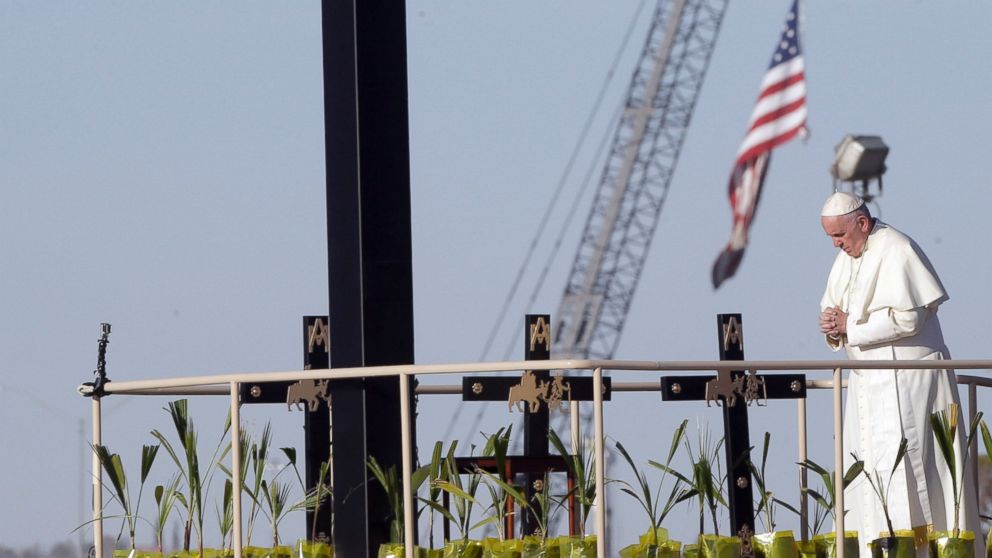Pope Francis Calls for 'Open Hearts' During Mass at US-Mexico Border
— -- On the last day of his trip to Mexico, Pope Francis visited a prison, spoke to business leaders and workers, and hosted a Mass near the U.S.-Mexico border.
At the border, the Pontiff asked the world to recognize the plight of people who risk their lives to flee violence, extortion and poverty at home and to put a human face to the "tragedy that is forced migration."
"No more death! No more exploitation!" he said.
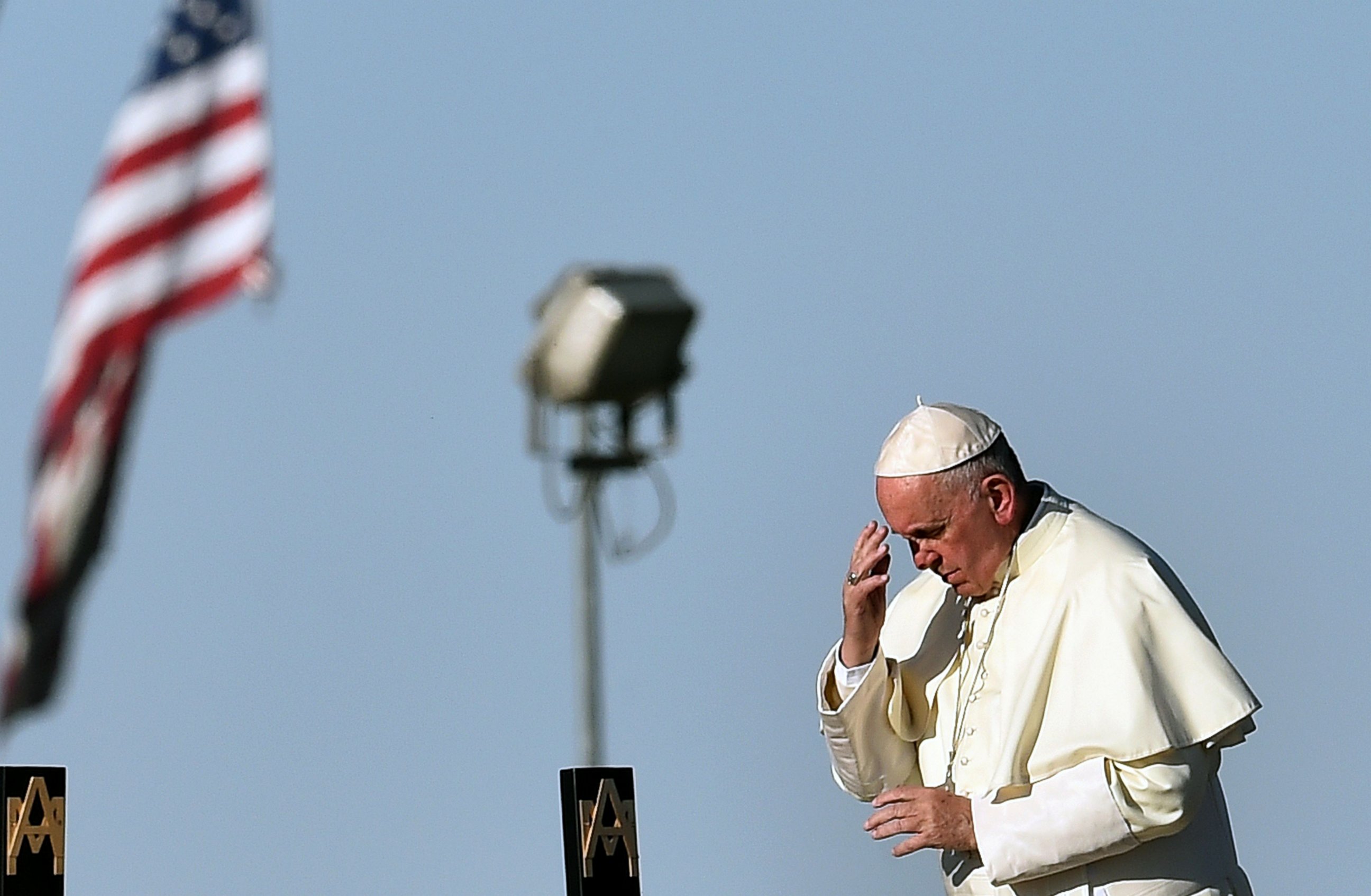
The Pope went on to ask people to have "open hearts" and think about the thousands in Central and South America who are fleeing gangs and violence in their homeland.
He said the journey of forced migration is "laden with grave injustices" and a "human tragedy."
"We cannot deny the humanitarian crisis which in recent years has meant the migration of thousands of people, whether by train or highway or on foot, crossing hundreds of kilometers through mountains, deserts and inhospitable zones," he said.
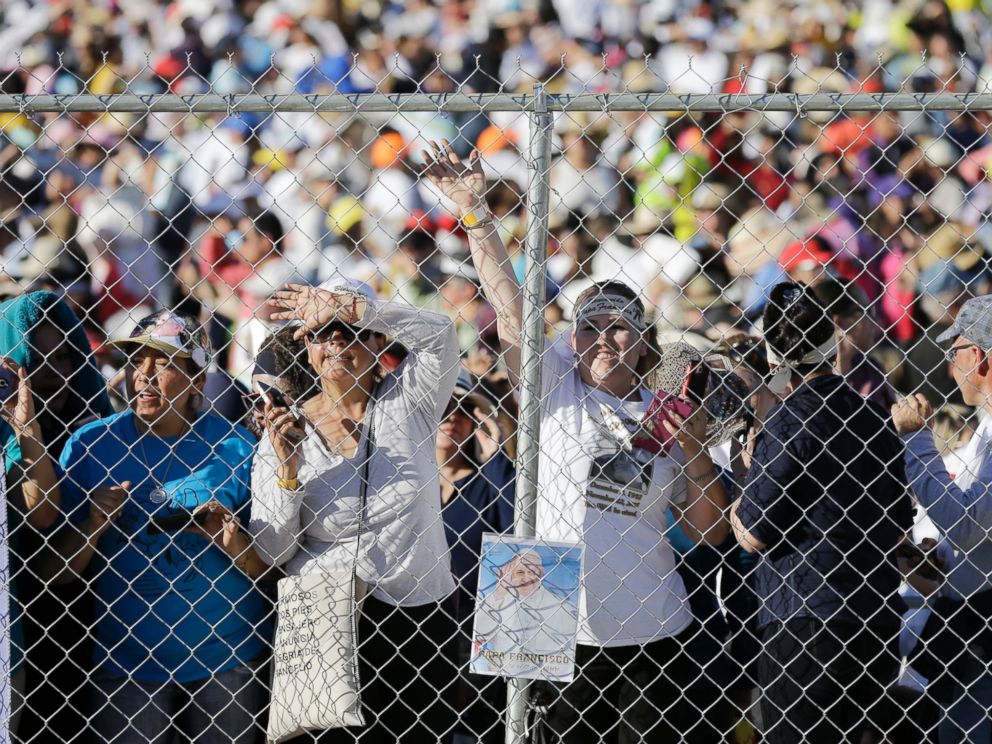
Earlier in the day, at the prison, the Pope called for a rethinking of how to punish criminals.
"We have already lost many decades thinking and believing that everything will be resolved by isolating, separating, incarcerating and ridding ourselves of problems, believing that these policies really solve problems," he said while visiting Cereso state prison in Ciudad Juárez, just across the border from El Paso, Texas.
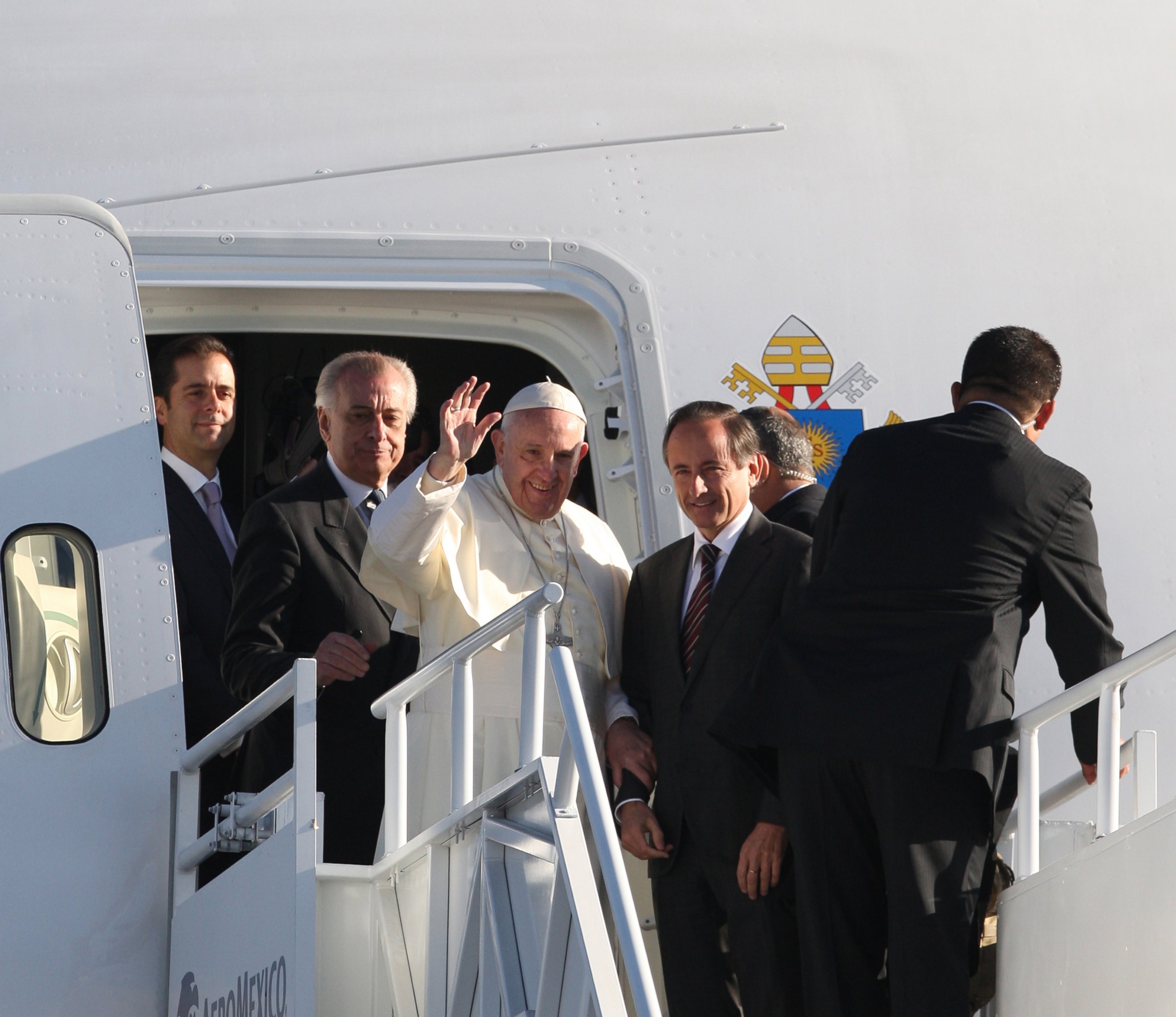
He called the need to fix prison society a "moral imperative."
Pope Francis also toured some of the areas that are most plagued by drug violence.
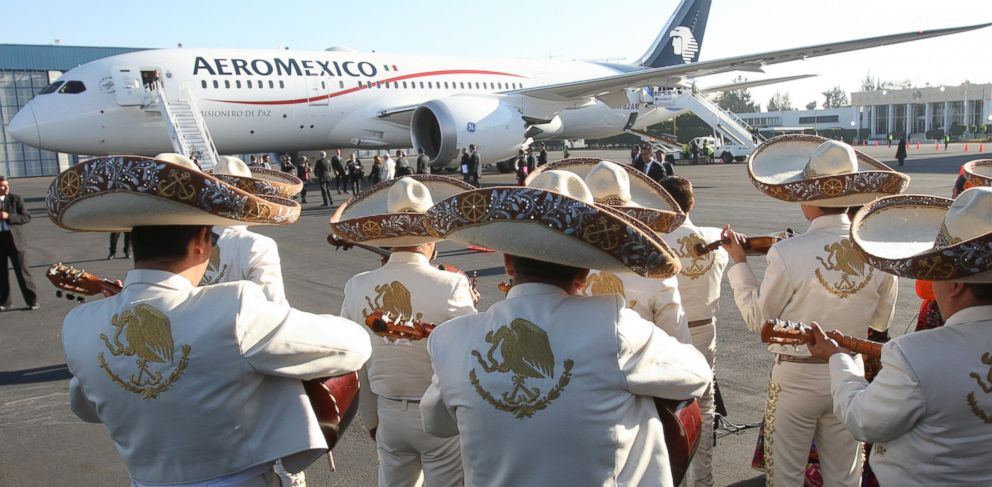
Later, while speaking to business leaders and workers in Ciudad Juárez, the Pope said that God "will hold the slave drivers of today accountable."
"The prevailing mentality puts the flow of people at the service of the flow of capital, resulting in many cases in the exploitation of employees as if they were subjects to be used and discarded," he said. "... And we must make sure that these situations do not happen again.”
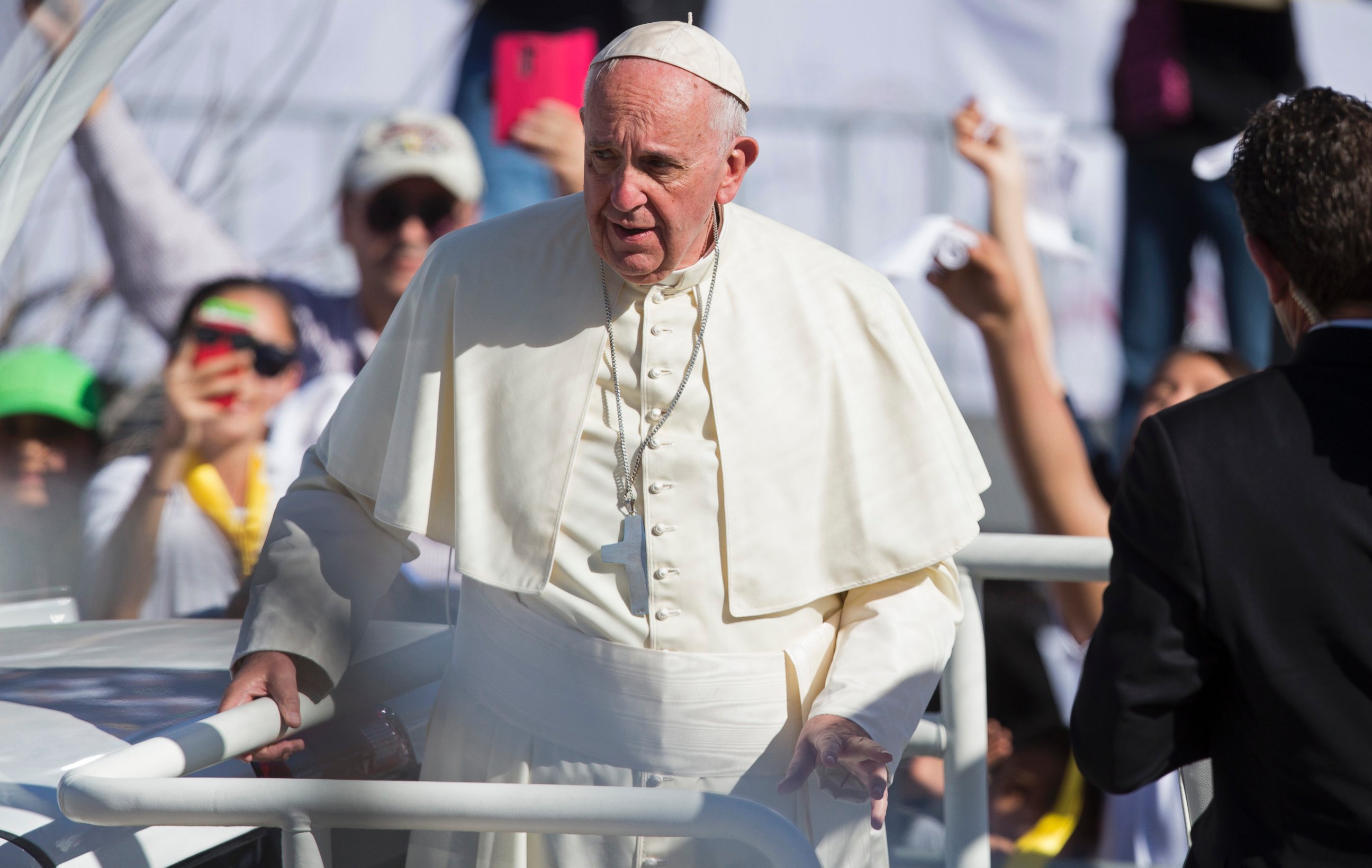
The Pope then urged Mexican employers to think about the legacy they want to leave for their children.
"Do you want to leave them the memory of exploitation, of insufficient pay, of workplace harassment?" he asked. He added: "What air will they breathe? An air tainted by corruption, violence, insecurity and suspicion, or, on the contrary, an air capable of generating alternatives, renewal and change?"
